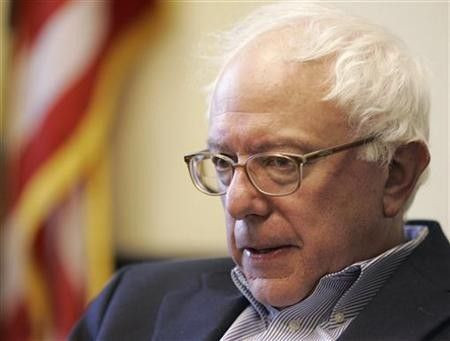JPMorgan Losses Give Boost To US Sen. Sanders' Bank Bill

The recent multibillion-dollar trading loss suffered by JPMorgan Chase & Co. (NYSE: JPM), the country's largest bank by assets, has strengthened the case against letting bank executives serve as directors of Federal Reserve regional banks and thus regulating themselves, policy makers say.
JPMorgan, the only bank to remain profitable during the financial crisis, disclosed its $2 billion trading loss on May 10. Since then its CEO, Jamie Dimon, has come under heavy criticism for unnecessarily taking risks -- risks that taxpayers could have been responsible for.
Earlier this week, U.S. Treasury Secretary Timothy Geithner said JPMorgan's losses have strengthened the overall case for reform.
On Tuesday, Sen. Bernie Sanders, the independent from Vermont, introduced the Federal Reserve Independency Act to weed out what he deems to be a conflict of interest. Should the Sanders bill become law, it would:
- Ban banking industry executives and other employees in companies being regulated by the Fed from serving on the boards of directors of Federal Reserve regional banks;
- Ban the banking industry from choosing any of the Fed's board of directors; and
- Ban Federal Reserve employees or board members from owning stocks or investing in companies that the Fed oversees.
Sanders' proposal, co-sponsored by Sen. Barbara Boxer (D-Calif.), came as arguments for tighter financial regulations grow.
The American people do not want to bail out Wall Street again, Sanders said. They do not want to see the financial system, once again, move toward collapse because of the reckless billion-dollar bets that giant financial institutions are making. In my view, the American people want financial institutions to be properly regulated, they want an end to the gambling casino that Wall Street has become, and they want our banks to be investing in the productive economy -- creating jobs, goods and services
The JPMorgan loss has also become a key argument for strict rule-making under terms of the 2010 Dodd-Frank Act.
Last year, as part of a provision in the Dodd-Frank Act, the Government Accountability Office (GAO) found that like Dimon, many who serve as directors of Federal Reserve regional banks are a part of the financial institutions regulated by the Fed. Sanders believes it is a conflict for Dimon to serve on the New York Federal Reserve Board.
In other words, the people 'regulating' the banks are the exact same people who are being 'regulated,' Sanders said. If this is not a clear example of the fox guarding the hen house, I don't know what is.
The GAO had found it worrisome to allow banking industry members to elect and serve as directors at Federal Reserve regional banks. It said such actions would create the appearance of a conflict of interest and that they posed a reputational risk to the Federal Reserve system.
Earning Statements Examined
Mary Schapiro, chairman of the Securities and Exchange Commission, told the Senate Banking Committee Tuesday that the SEC is reviewing earnings statements and first-quarter financial reports from JPMorgan to see how accurate they were.
The recent trading loss has sparked a FBI probe.
The FBI looks for evidence of crimes and goes after people who it alleges are criminals. They want to send people to jail, Erik Gordon, a professor in the law and business schools at the University of Michigan, told Reuters. The SEC pursues all sorts of wrongdoing, imposes fines and is half as scary as the FBI.
Additionally, federal regulators are reviewing information JPMorgan told investors about its finances and its risk-taking before the big loss.
Read the full text of the bill below:
052212-FedBill
© Copyright IBTimes 2025. All rights reserved.






















